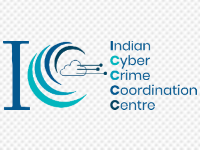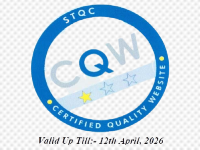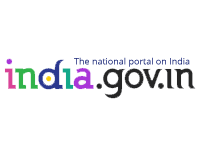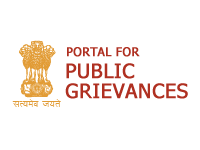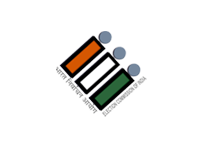Website Policy
1.Copyright Policy
All the contents available on the Department of Animal Husbandry and Dairying website are indigenously developed by Department of Animal Husbandry and Dairying and there is no third-party content present on this website. If any third-party content is present on the website, then Department of Animal Husbandry and Dairying has obtained the due permissions as per the copyright policies of the third parties whose contents are published on this website. Contents of this website may not be reproduced partially or fully, without due permission from the Department of Animal Husbandry and Dairying. It’s content, if referred to and/or forms a part of content of another website, the content-source must be appropriately acknowledged. The contents of this website cannot be used in any misleading or objectionable context. These terms and conditions shall be governed by and construed in accordance with the Indian Laws. Any dispute arising under these terms and conditions shall be subject to the exclusive jurisdiction of the courts of India.
2.Hyper Linking Policy
• Links to external websites/portals
At many places in this https://dahd.gov.in/, you shall find links to other websites/portals under External Links. These links have been placed for your convenience. Department of Animal Husbandry & Dairying is not responsible for the contents of the linked destinations and does not necessarily endorse the views expressed in them. Mere presence of the link or its listing on this https://dahd.gov.in/ should not be assumed as endorsement of any kind. We cannot guarantee that these links will work all the time and we have no control over availability of linked destinations.
• Links to DAHD by other websites
We do not object to you linking directly to the information that is hosted on this https://dahd.gov.in/ and no prior permission is required for the same. However, we would like you to inform us about any links provided to this https://dahd.gov.in/ so that you can be informed of any changes or updates in that. In addition, we do not permit our pages to be loaded into frames on your site. The pages belonging to this https://dahd.gov.in/ must load into a newly opened browser window of the User.
These are following external links available on DAHD website: https://dahd.gov.in/external-link
3.Privacy Policy
As a general rule, this website does not collect Personal Information about you when you visit the site. You can generally visit the site without revealing Personal Information, unless you yourself choose to provide such information. https://dahd.gov.in/ does not automatically capture any specific personal information from you (like name, phone number or e-mail address), that allows us to identify you individually. If you choose to provide us with your personal information, like names or addresses, when you visit our website, we use it only to fulfil your request for information. To use the Feedback Section, this website does not require registration. Information so collected is used to facilitate interaction. We do not sell or share any personally identifiable information volunteered on this site to any third party (public/private). Any information provided to this website will be protected from loss, misuse, unauthorized access or disclosure, alteration, or destruction. We gather certain information about the User, such as Internet protocol (IP) address, domain name, browser type, operating system, the date and time of the visit and the pages visited. We make no attempt to link these addresses with the identity of individuals visiting our site unless an attempt to damage the site has been detected.
4.Content Contribution, Moderation & Approval Policy (CMAP)
Content contribution: Programme Division of the Department contributes appropriate material in respect of the schemes/program for publication on the website.
Content moderation: The data is finalized in consultation with the concerned divisional head in the Department. ln case of any discrepancy in the data or content of the document, the Web information Manager verifies the authentication of documents/OMs/official articles/ etc.
Content approval: Programme Division furnishes information with the approval of the concerned divisional head, i.e., JS level officer.
The Department of Animal Husbandry & Dairying represents multiple divisions/departments. We hereby adopt a 2 and 3-tiered structure to implement CMAP needing minimum 3 officials to execute the CMAP roles, viz., Contributor, Moderator/Approver.
5.Content Review Policy (CRP)
The Department of Animal Husbandry & Dairying is the face of the Government disseminating government information and services. This content Review Policy has been formulated to keep the content on the https://dahd.gov.in/ current and up-to-date. Since the type of the content on the Department of Animal Husbandry & Dairying varies, different Review timelines are defined for the diverse content elements. Website content ls regularly reviewed by the Department based on the changes in schemes, guidelines etc.
This Review Policy is based on different types of content elements, their validity and relevance as well as the archival policy. As a general rule, The entire website content shall be reviewed in a phased manner over a period to ensure the currency of the content.
6.Content Archival Policy (CAP)
Website content is archived as per the extant guidelines on the subject. For time sensitive content which expires after a certain date (e.g. tender notifications, announcements for conference registrations, contest entries etc.), a policy on whether the content should be archived for future reference or removed altogether from the website should be decided by the concerned Department after careful consideration of their nature of content. However, ‘expired’ content MUST not be presented or flashed on the website. The content validity is about 45 days.
7.Contingency plan in the event of defacement/ natural calamity
The Department prepares Cyber Crisis Management Plans (CCMP) regularly. The CCMP which is verified by CERT-in includes contingency plans in the event of defacement or natural calamity. AII possible security measures are taken for the website to prevent any possible defacement/hacking by unscrupulous elements. Data Corruption: A proper mechanism has to be worked out by the concerned Government Departments, in consultation with their web hosting service provider to ensure that appropriate and regular back-ups of the website data are being taken. These enable a fast recovery and uninterrupted availability of the information to the citizens in view of any data corruption. Hardware/Software Crash: Though such an occurrence is a rarity, still in case the server on which the website is being hosted crashes due to some unforeseen reason, the web hosting service provider must have enough redundant infrastructure available to restore the website at the earliest.
8.Security policy
DAHD has a responsibility to protect from disclosure to unauthorized parties the personally identifiable information (name, address, date of birth, social security number, etc.) of its website users. DAHD will not sell, trade, nor disclose the personally identifiable information of its website users to any unauthorized third parties. DAHD uses cookies to enhance the website experience for its registered users. A cookie is a small file that is stored on the users hard drive. DAHD uses this file to maintain certain information about the user as they move between pages. While using the DAHD website certain information such as your IP Address and time spent on pages may be collected. This non-personal information is collected in order to monitor any unauthorized use or access to the site. Anyone caught attempting to harm, steal information from, or otherwise damage the website will be prosecuted to the full extent of the law.
• https://dahd.gov.in/ has been placed in protected zones with implementation of firewalls and IDS (Intrusion Detection System) and high availability solutions.
• Before launch of the https://dahd.gov.in/, simulated penetration tests have been conducted. Penetration testing has also been conducted 10 times after the launch of the https://dahd.gov.in/ .
• https://dahd.gov.in/ has been audited for known application level vulnerabilities before the launch and all the known vulnerability has been addressed.
• Hardening of servers has been done as per the guideline of Cyber Security division before the launch of the https://dahd.gov.in/.
• Access to web servers hosting the https://dahd.gov.in/is restricted both physically and through the network as far as possible.
• Logs at System log, VAR/log, Web access log, Web error log etc at different locations are maintained for authorized physical access of https://dahd.gov.in/ servers.
• Web-servers hosting the https://dahd.gov.in/ are configured behind IDS, IPS (Intrusion Prevention System) and with system firewalls on them.
• All the development work is done in a separate development environment and is well tested on the staging server before updating it on the production server.
• After testing properly on the staging server the applications are uploaded to the Production server using SSH and VPN through a single point.
• The content contributed by/from remote locations is duly authenticated & is not published on the production server directly. Any content contributed has to go through the moderation process before final publishing to the production server.
• All contents of the web pages are checked for intentional or unintentional malicious content before final upload to web server pages.
• Audit and Log of all activities involving the operating system, access to the system, and access to applications are maintained and archived. All rejected accesses and services are logged and listed in exception reports for further scrutiny.
• Help Desk staff at the DAHD NIC monitor the DAHD at intervals of hourly basis to check the web pages to confirm that the web pages are up and running, that no unauthorized changes have been made, and that no unauthorized links have been established.
• All newly released system software patches; bug fixes and upgrades are Expediently and regularly reviewed and installed on the web server.
• On Production web servers, Internet browsing, mail and any other desktop applications are disabled. Only server administration related tasks are performed.
• Server passwords are changed at the interval of 1 months and are retained by Linux System Administrator.
• Linux System Administrator-DAHD have been designated as Administrator for the https://dahd.gov.in/ and shall be responsible for implementing this policy for each of the web servers. The administrator shall also coordinate with the Audit Team for required auditing of the server(s).
• https://dahd.gov.in/ has been re-audited for the application level vulnerability after major modification in application development [Not applicable at first launch].
• The https://dahd.gov.in/ has been audited before launch and has complied with all the points mentioned in the policies document of the Cyber Security Group mentioned above.
• https://dahd.gov.in/ has also been subjected to an automated risk assessment performed through vulnerability identification software before and after the launch and all the known vulnerabilities have been addressed.
9.Website Monitoring Plan
Websites must be monitored periodically in accordance with the plan to address and fix the quality and compatibility issues around the following parameters:
• Performance: a. Site download time should be optimised for a variety of network tested for this.
• Functionality: b. All modules of the website should be tested for their functionality on a period of 15 days. Moreover, interactive components of the site such as discussion boards, opinion polls, feedback forms etc. should be working smoothly.
• Broken Links: c. The website should be thoroughly reviewed to rule out the presence of any broken links or errors done on a weekly basis and broken links are monitored daily using the tools : https://validator.w3.org/checklink.
• Traffic Analysis: d. The site traffic should be monitored on weekly basis to analyse the usage patterns as well as visitors’ profile and preferences. Traffic Analysis tools also give reports on broken links.
• Feedback: e. Feedback from the visitors is the best way to judge a website’s performance and make necessary improvements. A proper mechanism for feedback analysis should be in place to carry out the changes and enhancements as suggested by the visitors.






 पशुपालन और डेयरी विभाग
पशुपालन और डेयरी विभाग

